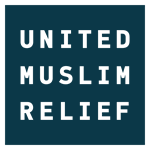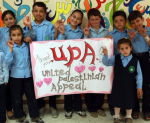Subscribe
to receive news by email
Subscribe
to receive news by email
Arabic 101
Arabic Word of the Day
Shami and Levantine Dialect
AraBIT
Arab Trivia
History Three of the seven wonders of the ancient world are in the Middle East: the Great Pyramid of Giza, the Hanging Gardens of Babylon, and...
Read More
Poll
Will the Trump Administration Shift U.S. Policy in Favor of Palestine?
- No (87%)
- Yes (13%)
Copyright © 2025 Arab America
Go topCommunity
ABOUT UNITED MUSLIM RELIEF
United Muslim Relief is a registered 501 (c)(3) non-profit organization. It is one of the fastest growing NGO’s in the United States, with a focus on building humanitarian coalitions to tackle developmental needs.
At UMR we believe everyone has a right to live free of poverty in a secure and more equitable world where they are able to realize their potential.
Although inspired by our Islamic ethos, we are open-minded and pluralistic. We believe that all people, regardless of race or religion should have access to clean water, to healthcare, to earn a sustainable livelihood and to have access to basic social services.
Climate change alongside shortages in natural resources, famines, humanitarian crises, energy limitations and proliferation of conflicts mean that now more than ever, collaboration in the field of international development is needed. We therefore work with diverse partners to tackle some of these mounting challenges.
Alongside our strong belief in collaboration, at UMR we believe strongly in giving back to our volunteers and to the numerous communities that support us. Through investing in our student led chapters nationwide, we strive to develop tomorrow’s humanitarian leaders.
OUR VISION
To be a world leader in uniting partner organizations’ relief and development services to assist underserved communities in achieving the dignity of self-sustenance.
OUR PURPOSE
We believe that all people, regardless of race or religion should have access to clean water, to healthcare, to earn a sustainable livelihood and to have access to basic social services.
OUR APPROACH
We try to attain our purpose through delivering sustainable programs, educating the public, running campaigns, advocating for change and delivering humanitarian aid in disasters and conflicts.
Established in 1978, United Palestinian Appeal, Inc. (UPA) is dedicated to providing aid to Palestinians in need, especially children, in the West Bank, the Gaza Strip, and Palestinian refugee camps in Lebanon. Ghassan J. Tarazi Executive Director
UPA was established in 1978 in New York state by Palestinian-Americans from the business and professional communities who shared a vision of an efficient and professionally managed charity that would assist needy Palestinians and contribute to socioeconomic and cultural development in Palestine.
In 1980, UPA was granted tax-exempt status under Section 501(c)(3) of the U.S. Internal Revenue Code.
In 1985, UPA became the first Palestinian-American charity to be registered with the U.S. Agency for International Development (USAID) as a Private and Voluntary Organization (PVO) (registration does not imply endorsement).
In 1985, UPA began funding the construction of a $2.4 million nursing college on the Mount of Olives affiliated with al-Makassed Islamic Charitable Hospital. Thanks to a $1.1 million grant from King Fahd of Saudi Arabia and his brother Prince Salman, UPA was also able to greatly expand its assistance programs in healthcare, education, children’s services, community development, and emergency relief.
In 1986, UPA initiated its Child Sponsorship Program and its University Scholarship Program.
Between 1985 and 1987, UPA sent nearly $450,000 in emergency medicines and supplies to Palestinian refugees in southern Lebanon.
In 1987, with the outbreak of the first intifada, UPA shifted its funding priorities to emergency medical relief for intifada-related injuries.
In 1989, UPA became the first Palestinian-American charity accepted by the United States Combined Federal Campaign (CFC), the national organization that manages charitable solicitation of federal government employees.
In 1990, the UPA/al-Makassed Nursing College in East Jerusalem was completed. It is the first modern, four-year nursing college in Palestine offering training to meet the increasing healthcare demands of the Palestinian population.
In 1991, the Independent Charities of America (ICA), a nationwide consortium of approved charities soliciting federal, state, and local public employees, accepted the UPA as a participating member agency.
In 1994, in the wake of the Oslo agreement, UPA redirected its grant making to programs aimed at the long-term socioeconomic recovery and development of Palestinian society in the West Bank and Gaza Strip.
From 2000 onwards, UPA responded to the al-Aqsa intifada by giving priority to emergency medical relief programs.
In 2002, UPA was awarded a $2.7 million grant from the United States Agency for International Development (USAID) to implement the Emergency Employment Generation Project, a job creation and infrastructure development program throughout the West Bank and Gaza Strip in cooperation with the Welfare Association in East Jerusalem. The program represented an emergency response to a devastating economic collapse, including an unemployment rate of over 40%.
In 2003, UPA and its partner, Nour Foundation, sent over $424,000 worth of medicines and supplies to West Bank hospitals and clinics.
In 2004, UPA successfully completed the USAID-funded Emergency Employment Generation Project. UPA and the Nour Foundation shipped over $1 million in medical supplies, including hygiene kits, supplemental feeding formula, blankets, and clothing, to the United Nations Relief and Works Agency (UNRWA) for distribution to hospitals, clinics, and schools in the West Bank and Gaza Strip.
In 2005 and 2006, UPA partnered with Project Harmony to implement the MEDIA Youth Leadership Exchange Program between U.S. and Jordanian/Palestinian students. The program was funded by the U.S. State Department Bureau of Educational and Cultural Affairs’ Linking Individuals, Knowledge, and Culture Initiative.
In 2006, UPA facilitated two pharmaceutical shipments to the Gaza Strip and Lebanon: a shipment of $6.5 million worth of pharmaceuticals to 15 UNRWA health centers in Gaza to aid 35,000 needy refugees and non-refugees; and a $1.5 million pharmaceutical shipment to the Hariri Foundation to aid Palestinian refugees and the people of Lebanon. Immediately following the war in summer 2006, UPA sent $1.2 million worth of pharmaceuticals to Lebanon.
In 2008, UPA responded immediately to the devastation caused by an Israeli airstrike on the Palestinian Medical Relief Society’s main clinic in the Gaza Strip, sending $40,000 so PMRS could continue running their essential mobile clinics.
In 2009, UPA committed $152,100 to guarantee water, food, first-aid kits, and plastic sheeting (to replace bombed-out windows) to those devastated by the war in the Gaza Strip.
In 2010, UPA distributed $4.7 million in pharmaceuticals to UNRWA in the Gaza Strip.
In 2011, UPA donated textbooks worth $479,037 to Al-Quds University.





